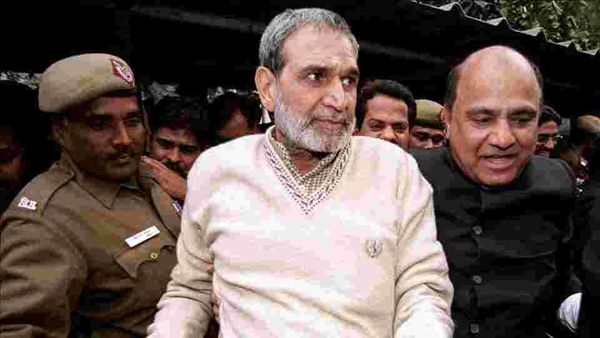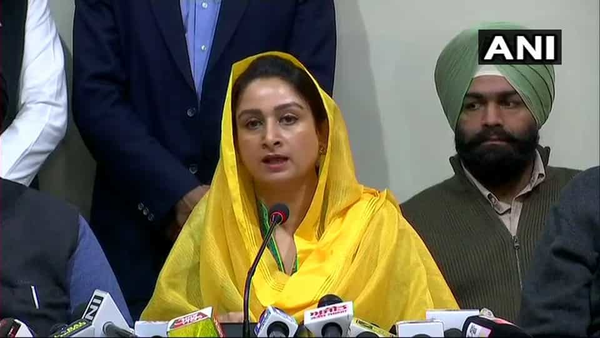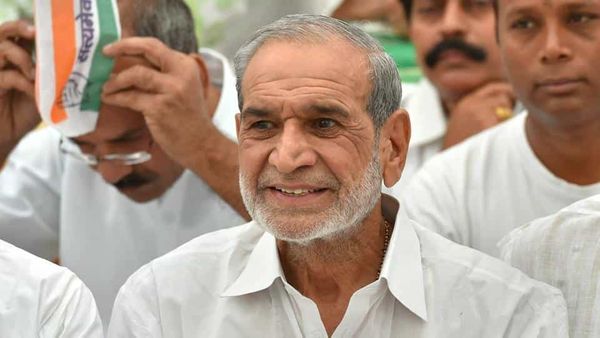
The moment he heard about Sajjan Kumar’s conviction in a 1984 anti-Sikh riots case on Monday morning, 49-year-old Kanwaljeet Sandhu knew it was time for his “symbolic celebration”.
The man who lost two brothers in the riots would spend Monday evening lighting lamps at his home in east Delhi’s Trilokpuri -- one of the worst-hit neighbourhoods in the violence that broke out after former prime minister Indira Gandhi’s assassination.
“The rioters had justified their violence by falsely accusing us of lighting lamps to celebrate Indira Gandhi’s killing. Today, I will actually light a lamp to celebrate justice. It has been a month of good news,” said Sandhu, who himself suffered lifelong wounds.
Jassi Kaur, 86, offered a subdued response. Sitting expressionlessly on a cot in a sunny street in Widow Colony, near west Delhi’s Tilak Nagar, Kaur said, “Sajjan Kumar’s relatives will be able to meet him in jail every week. He will appeal the judgment and will be out on bail soon. Is that justice?”
Jassi’s 15 relatives, including her son and husband, were killed in the riots.
In Palam Colony, Mokam Singh and many other residents went about their work like any other day. “We discussed the judgment but didn’t celebrate. It took time but we are happy it has been delivered,” said Singh.
Read | ‘A cop asked, kitne murge bhun diye’: 1984 riots witness recalls horror
Many Sikh residents left Palam for Punjab after the violence. “We are just about a dozen families here now. Most left after their relatives were killed or their houses were destroyed,” said Mokam, who owns a business of air-conditioners.
Mokam, who 10-years-old when the rioting happened, has faint memories of the violence. “My father worked in the local Gurdwara and had seen so many people killed. But he ensured I stayed indoors,” said Singh. Singh and his family survived but his house was destroyed.
The convictions in the anti-Sikh riots haven’t meant closure for people who lost their dear ones. While many young survivors say they are celebrating the recent convictions, for the older generations, it is “delayed justice”.
Thakri Kaur, 65, is afraid “too much justice” may lead to “hatred”. “I worry when I hear talks about riots or even justice. I have seen how politics over religion destroy lives,” said Thakri, who saw her father-in-law and two brothers-in-law burn to death.
Thakri was beaten up when she tried to offer water to her father-in-law. She had a metal in her leg for years. “She panics when she sees neighbours fighting. She feels it will end up in riots,” said Thakri’s daughter Kali.
Also Read | ‘Carnage of unbelievable proportions’: Delhi High Court convicts Sajjan Kumar for 1984 riots
Then, there are others make it a point to keep track of court cases. Auto driver Mahender Singh, 44, had left an entire day of work to attend hearing on November 20 when two other men were convicted by a city court.
“I was forced to start working at a young age. The riots shattered my big dreams and left me poor. My heart feels lighter each time I see anyone being punished,” said Mahender, a Tilak Nagar resident whose two brothers were killed in the riots. He escaped death by tying his hair like a girl and sneaking out in a frock.
Some feel Sajjan Kumar’s life sentence is an opportunity squandered away. “The country had one opportunity to send the message that no rioter, however powerful, will be spared. We have wasted the opportunity by failing to award the death penalty to Sajjan Kumar,” said Surjeet Kaur, 85, who lost her son and husband.
For most survivors, the convictions were “too late and too little”. But they were just thankful that they haven’t been “outcast” in recent years. “Most stood by us, which made the convictions possible. The rioters have been finding very little open support,” said Sonu Singh, an auto driver who lost his grandfather in the riots.
Jassi Kaur agrees that Sikhs in Delhi are safer today but the convictions do not mean closure. She still vividly remembers a policeman, “someone named Sharma”, comforting her family and asking them to stay safe indoors. “Once we were inside our homes, he removed his cap and signalled to a mob. In the next few hours, I lost 15 relatives,” Jassi said.
“The policemen in our neighbourhood (Tilak Nagar) haven’t been oppressive towards Sikhs and limit themselves to bribery but I still can’t trust them. I am unable to forgive or forget easily,” she said.
First Published: Dec 18, 2018 12:01 IST










